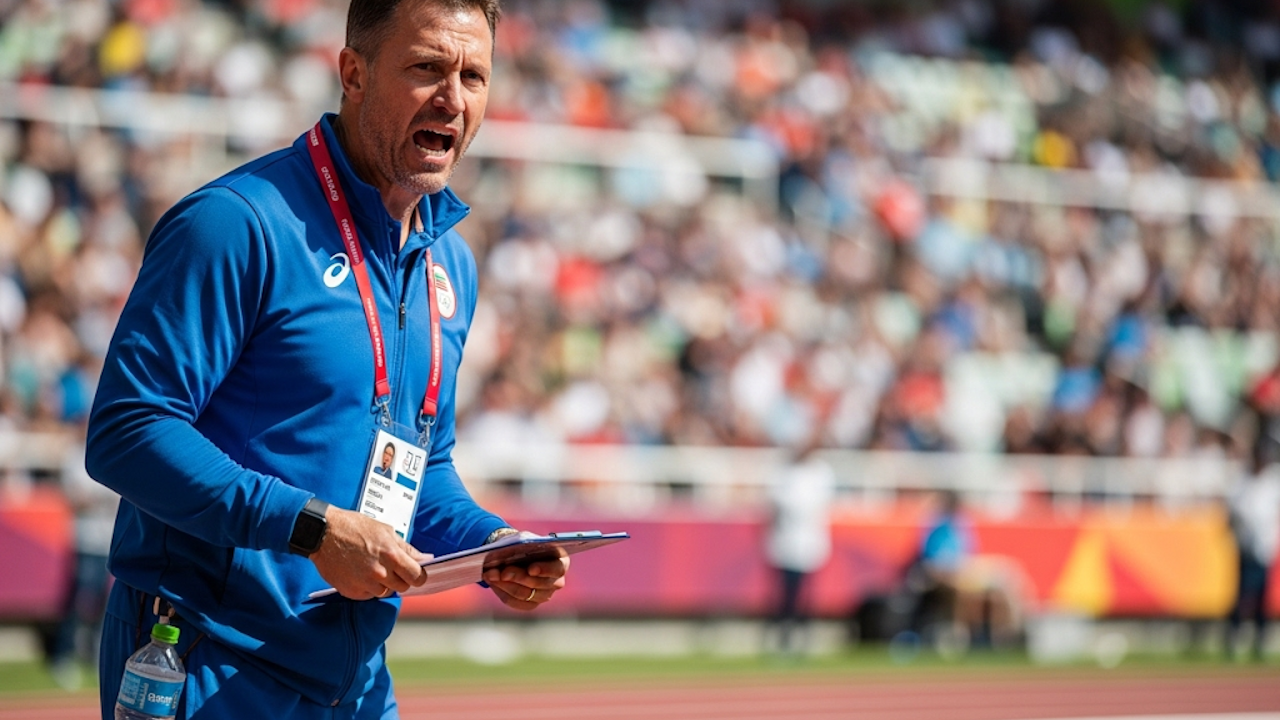The pinnacle of athletic achievement, the Olympic Games, represents the culmination of years of dedication, sacrifice, and relentless pursuit of excellence. While the athletes themselves stand in the spotlight, a crucial, often unsung, figure behind their success is the Olympic-level coach. These individuals are not merely trainers; they are mentors, strategists, psychologists, and innovators, possessing a unique blend of qualities that enable them to guide athletes to the very top. What truly defines an Olympic-level coach goes far beyond technical expertise; it encompasses a profound understanding of human potential, an unwavering commitment to development, and an intricate mastery of the coaching craft.
One of the foundational pillars of an Olympic-level coach is an unparalleled depth of knowledge within their specific sport. This isn’t just about understanding the rules or basic techniques. It involves a comprehensive grasp of biomechanics, physiology, sports psychology, nutrition, and recovery strategies, all tailored to the elite athlete. They must be perpetual students, constantly researching new training methodologies, analyzing competitor strategies, and adapting to the ever-evolving landscape of their sport. This expertise allows them to design highly individualized and scientifically sound training programs, optimizing every aspect of an athlete’s preparation. They can dissect a movement with surgical precision, identify minute flaws, and prescribe corrective exercises that unlock incremental gains crucial at the elite level.
Beyond theoretical knowledge, an Olympic-level coach possesses exceptional practical experience. They have spent countless hours on the field, in the gym, or by the track, observing, experimenting, and refining their approach. This hands-on experience provides them with an intuitive understanding of how athletes respond to different stimuli, how to manage injuries, and how to peak performance at critical moments. They have likely coached athletes through various stages of their careers, from promising juniors to seasoned professionals, accumulating a wealth of real-world insights that cannot be learned from textbooks alone. This practical wisdom allows them to adapt quickly to unforeseen circumstances and make critical decisions under pressure.
Perhaps even more critical than technical prowess is the coach’s mastery of interpersonal skills and emotional intelligence. Olympic athletes are not machines; they are complex individuals with their own anxieties, aspirations, and vulnerabilities. An Olympic-level coach must be an astute observer of human behavior, capable of building profound trust and rapport. They understand the delicate balance between pushing an athlete to their limits and knowing when to offer support and reassurance. This involves exceptional communication skills: the ability to articulate complex concepts clearly, provide constructive feedback effectively, and listen actively to an athlete’s concerns. They act as psychologists, helping athletes navigate the immense pressure of competition, overcome mental blocks, and maintain unwavering focus. They celebrate successes genuinely and provide empathetic guidance through setbacks, fostering resilience and a belief in oneself.
Vision and strategic thinking are hallmarks of an Olympic-level coach. They don’t just plan for the next training session; they meticulously map out an athlete’s entire career trajectory, with the Olympic Games as the ultimate target. This involves long-term periodization, identifying key developmental milestones, and strategically selecting competitions that will prepare the athlete for peak performance. They anticipate challenges, devise contingency plans, and are always looking several steps ahead. This strategic foresight allows them to make informed decisions about training load, travel schedules, and competitive opportunities, all designed to maximize the athlete’s potential for success on the grandest stage.
An Olympic-level coach is also a master of adaptation and innovation. The world of elite sport is constantly evolving, with new techniques, technologies, and competitive landscapes emerging regularly. These coaches are not resistant to change; they embrace it. They are open to new ideas, willing to experiment, and capable of integrating cutting-edge research into their coaching philosophy. This might involve adopting new strength and conditioning methodologies, utilizing advanced data analytics, or exploring novel psychological interventions. They understand that stagnation leads to decline, and they are continuously seeking ways to gain a competitive edge for their athletes.
Finally, and perhaps most importantly, an Olympic-level coach possesses an unwavering commitment and passion for their sport and for the development of their athletes. Coaching at this level is not a 9-to-5 job; it is a lifestyle. It demands immense personal sacrifice, long hours, extensive travel, and often, emotional investment that goes beyond professional duty. They are driven by a genuine desire to see their athletes succeed, to help them realize their dreams, and to contribute to the rich tapestry of Olympic history. This deep-seated passion fuels their resilience in the face of challenges, their relentless pursuit of improvement, and their ability to inspire and motivate others to reach unimaginable heights.
In conclusion, becoming an Olympic-level coach is an arduous journey that requires a rare combination of intellectual rigor, practical wisdom, emotional intelligence, strategic foresight, adaptability, and unwavering dedication. They are the architects of athletic dreams, the silent forces behind world records and podium finishes. Their impact extends far beyond the medals won; they shape character, instill discipline, and leave an indelible mark on the lives of the athletes they guide, truly embodying what it takes to forge champions.

